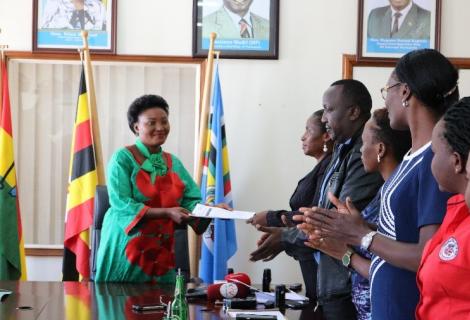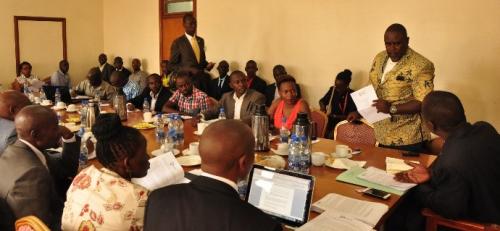Fighting taxes that increase inequality

Tax Justice Alliance Uganda was established in 2014 by a number of civil society organisations, including ActionAid, concerned about the issue of fair taxation. The advantage of being part of an alliance became clear when the Parliament of Uganda introduced a new tax measure that would increase inequality.
On the 30th of May 2018, the parliament of Uganda passed the Excise Duty Amendment Act. Tax Justice Alliance Uganda found some of the amendments in this act problematic and decided to challenge it - and continues to advocate against the law as it stands today.
The two main issues concern a tax on “mobile money” (transfer of funds using mobile phones) and a tax on “over the top” services, which targets the use of social media.
Tax on mobile money: Parliament proposed a 1% tax on the value of a mobile money transaction including depositing, receiving, paying or withdrawing mobile money. This is on top of an existing tax of 10% on money transfers.
The problem with a tax on mobile money is that its impact is greatest in rural areas with poor populations. In these areas, people have less access to banking facilities and are more dependent on mobile money. The mobile money tax also jeopardised Ugandan jobs dependent on mobile money transactions.
Tax on over the top services: "Over the top services” – referring to the use of Facebook, Twitter, and other social media – attracted a tax of Ush 200 (roughly US$0.05) per user per day. This might seem small, but in practice it restricts the access to social media for poor people.
This is a huge problem because social media is a vehicle for popular political participation. These platforms are used to mobilise people and criticise the government. Youth unemployment is high and many young people run their informal businesses online, making the tax an impediment to earning an income. The Ush 200 is also a flat tax rate, impacting low-income earners more than those with higher incomes.
Making change
Tax Justice Alliance Uganda met when the bill was introduced to analyse it. Discovering how unfair the bill was going to be, we engaged journalists to raise awareness on the issue and try to dissuade parliament from passing the bill into law without much-needed revisions. The alliance mobilised and engaged citizens from different areas, which contributed to maintaining public pressure.
After the bill was passed into law, the alliance campaigned against it and presented a petition to the parliamentary committee. In the end, we succeeded in pressuring the government to reduce the mobile money tax from 1 % to 0.5 % on withdrawals and no longer applied to receiving or making payments.
The messages and position papers developed by the alliance attracted the attention of Members of Parliament who now want to work with the group on tax bills. We also seized the opportunity to reveal that while the government expects to collect Ush 115 billion and Ush 284 billion from the taxes on mobile money and “over the top” services respectively, Uganda is estimated to be losing between Ush 90 billion and Ush 1 trillion annually due to tax exemptions that are awarded with the aim of attracting foreign direct investment.


